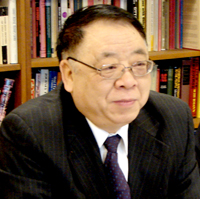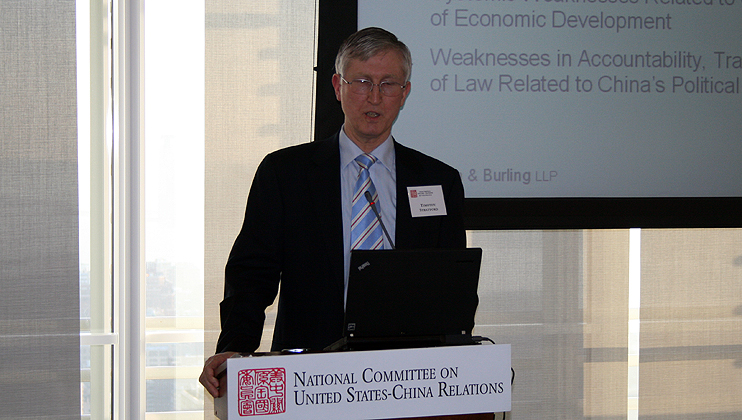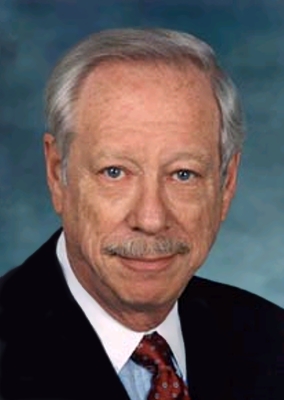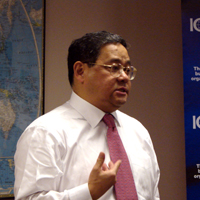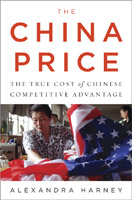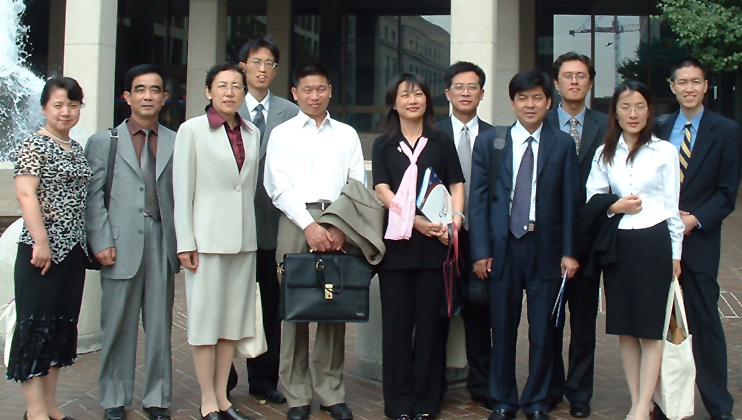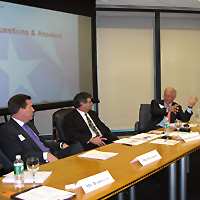The National Committee and G+, Gerson Lehrman Group’s new online community for sharing expertise, co-hosted a breakfast and panel on the current state of China's labor market on Tuesday, October 18. The event coincided with the National Committee’s 45th Anniversary Gala.
Ma Zhengang, former Chinese ambassador to the United Kingdom and current president of the China Institute of International Studies (CIIS), visited the National Committee office for a small, off-the-record roundtable discussion. Ambassador Ma was joined by scholars from CIIS and Peking University, and an official from the Ministry of Foreign Affairs.
Former Assistant U.S. Trade Representative for China Affairs Timothy P. Stratford discussed challenges in U.S.-China economic relations in an off-the record program at the Covington and Burling office in New York on April 1, 2010. He highlighted some of the core trade issues in the U.S.-China relationship, discussed the available tools and approaches for addressing these issues, and described the complex context in which these tools may be used.
Author Zachary Karabell discussed his new book Superfusion: How China and America Became One Economy and Why the World's Prosperity Depends on It at the Jones Day offices in New York on November 12, 2009.
In its continuing celebration of the 30th anniversary of the establishment of diplomatic relations between the United States and China, the National Committee featured former U.S. Secretary of the Treasury W. Michael Blumenthal in a conversation with National Committee President Stephen Orlins on April 20, 2009 in Washington, D.C. Their discussion shed light on the current global financial crisis via the prism of the historical Sino-American financial relationship, its ramifications for the present and potential for the future.
In July, 2008, the National Committee brought together 30 of the best minds on various aspects of China and several specialists in other areas for a synergistic, cross-cutting look at some of the major challenges facing China and the United States and what the best policies might be to enhance cooperation and ameliorate conflict over […]
Mr. Fung offers his views on the multilateral trading system from the Asia/Pacific perspective and discusses ways to engage Asia in international forums, especially in light of the current economic environment.
Alexandra Harney examines some of the reasons why China is able to offer such low prices on its manufactured goods. She also highlights the consequences of the “China price,” including the health and safety of workers and environmental degradation.
In 2002, a consortium that included the National Committee, The Asia Foundation, and Worldwide Strategies, Inc. was awarded a multi-year contract by the U.S. Department of Labor to run a set of programs to improve Chinese labor laws. The overall goals were to help strengthen the Chinese government's capacity to develop laws and regulations to implement internationally recognized standards of workers' rights, to promote greater awareness of labor law among Chinese workers and employers, to strengthen industrial relations, and to improve legal aid services to women and migrant workers. The National Committee's mandate was to work on legislative and labor inspection issues.
Business has been a driving force in expanding U.S.-China relations, and American companies of all sizes continue to enter the China market or expand their current operations at an unprecedented rate. What do American businesses operating in China see as key issues, and what steps can both countries’ governments take to improve the business climate? […]
